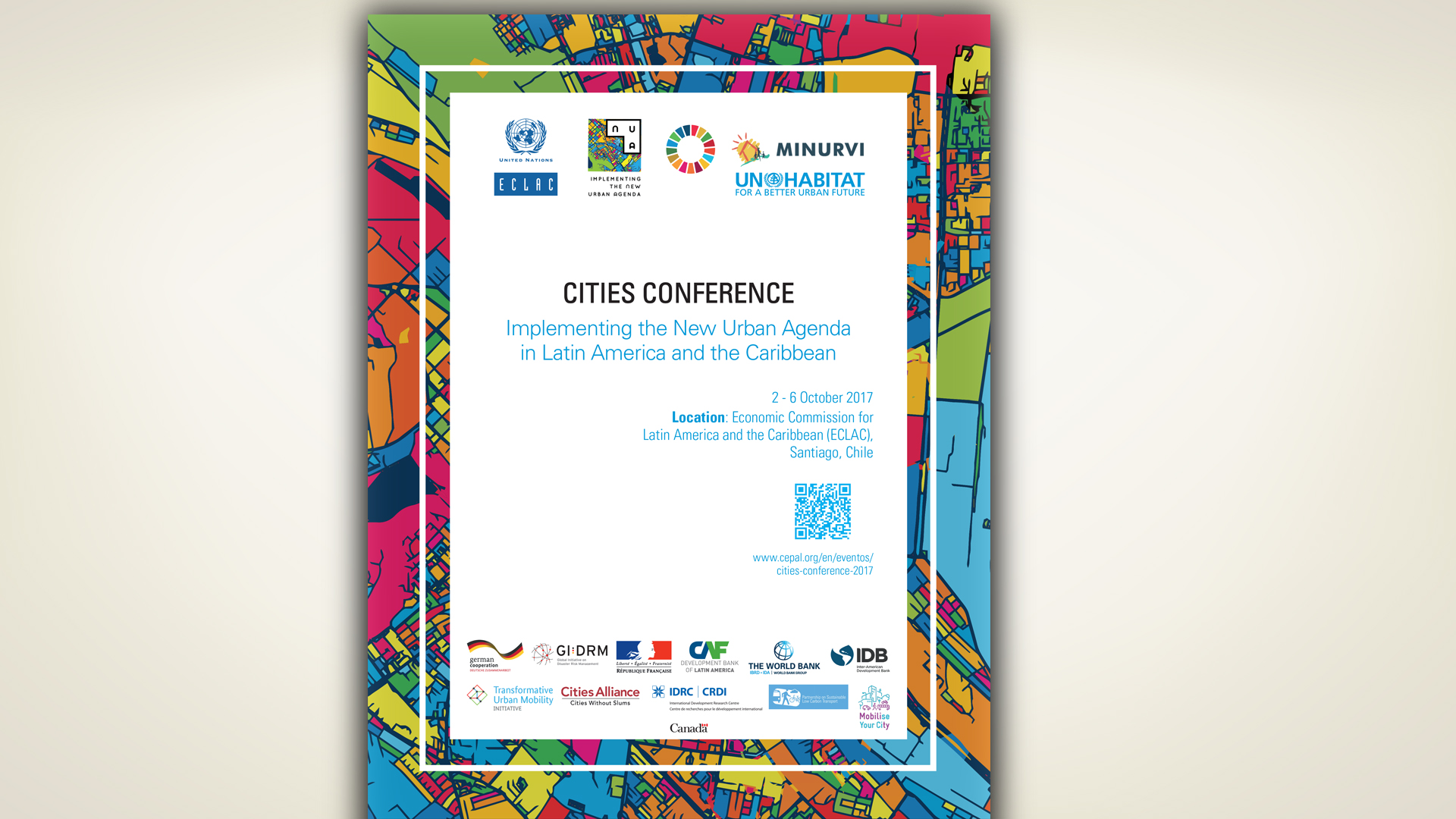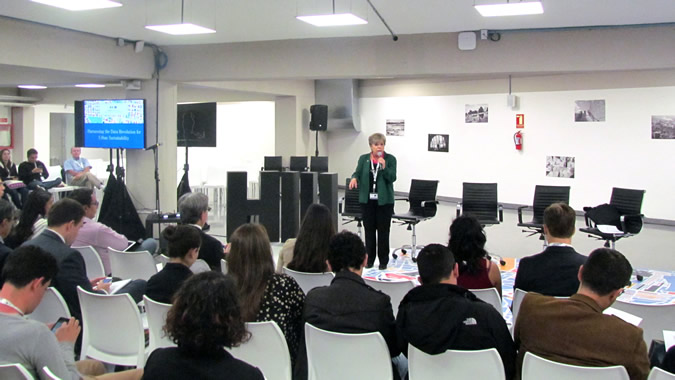National, Subnational Governments and Experts to Analyze at ECLAC Mechanisms of Implementation for New Urban Agenda in the Region
Work area(s)
The Cities Conference, co-organized by ECLAC, MINURVI and UN-Habitat, will be held October 2-6 at the regional Commission’s headquarters in Santiago, Chile.

Decision-makers and experts linked to urban development and territorial management and planning in Latin America and the Caribbean will analyze the strategic aspects of and mechanisms for implementing and monitoring the New Urban Agenda in the region during the Cities Conference, to be held October 2-6 at the headquarters of the Economic Commission for Latin America and the Caribbean (ECLAC) in Santiago, Chile.
The Conference, which is taking place nearly one year after the Habitat III Conference held in Quito, will bring together national and subnational actors, representatives from academia and civil society, development banks, the private sector and international agencies.
The meeting will serve as a strategic platform for dialogue on implementing the New Urban Agenda (NUA) in Latin America and the Caribbean and contributing to the fulfillment of the Sustainable Development Goals (SDGs), in particular SDG 11, which seeks to achieve inclusive, safe, resilient and sustainable cities and human settlements.
The conference will include sessions on governance, financing and monitoring of the Regional Action Plan for implementation of the NUA in the region and will analyze the scope of the development of a Regional Urban and Cities Observatory for Latin America and the Caribbean. There will also be a special session on the areas of urban resilience, public-private cooperation and urban mobility to contribute to the discussion and reflection on the implementation and monitoring of the NUA and the transition toward sustainable urban development.
The meeting will begin on Monday, October 2 with the seminar Resilient Cities in Latin America and the Caribbean: Key concepts, experiences and projections, an event aimed at identifying and exchanging examples of policies, programs and practices of resilience in the face of extreme events and of risk management related to each one of the six pillars of the Regional Action Plan, both at the national and subnational levels.
On Tuesday, October 3, Alicia Bárcena, ECLAC’s Executive Secretary, will officially open the Conference at the seminar on Implementing the New Urban Agenda in Latin America and the Caribbean: Regional Action Plan, Action Plan for the Caribbean, Regional Urban and Cities Observatory for Latin America and the Caribbean.
The seminar, which will conclude on October 4, will focus on discussing and reflecting upon the strategic aspects and mechanisms for implementation and monitoring of the NUA in Latin America and the Caribbean. During the meeting, the Regional Action Plan will be presented, which is the principal strategic framework and public policy reference as well as a governance tool for promoting the implementation of the New Urban Agenda in the region.
There will also be a discussion of the Subregional Action Plan for the implementation of the NUA in the Caribbean, as well as analysis of the scope of the Regional Urban and Cities Observatory for Latin America and the Caribbean.
That same day in the afternoon, ECLAC and the German Cooperation (GIZ) will launch the publication entitled Sustainable Development, Urbanization and Inequality in Latin America and the Caribbean: Dynamics and Challenges for Structural Change.
On October 4 and 5, there will be a Public-Private Dialogue for Promoting Urban Sustainability in Latin America and the Caribbean, organized by ECLAC and the government of France.
This occasion seeks to foster a renewed look at the potential of public-private alliances for urban sustainability in the cities of LAC with the participation of government representatives from diverse levels as well as other public entities, from the private sector, experts and civil society.
The Conference will conclude with the seminar entitled Moving towards the Implementation of Safe, Affordable and Sustainable Urban Mobility in Latin America and the Caribbean, which will take place on October 5 and 6. This will focus on the opportunities and challenges to accelerating the systemic implementation of strategies of urban and territorial mobility considering technological, fiscal, institutional and legal factors in convergence with the implementation of the Regional Action Plan and the global agendas, in particular, the NUA, the 2030 Agenda and the Paris Agreement.
Some sessions of the Cities Conference will be transmitted live.
Related content

At Habitat III, ECLAC Urges Harnessing the Data Revolution to Drive Sustainable Urban Development
Alicia Bárcena, Executive Secretary of ECLAC, attended a side event at the United Nations Conference on Housing and Sustainable Urban Development.
Type
Country(ies)
- Latin America and the Caribbean